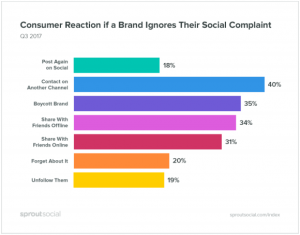Microsoft, iProspect Coin ‘Relevance Score,’ Analyze Impact Of Digital Assistants On Advertising
by Laurie Sullivan @lauriesullivan, March 14, 2017
The Relevance Score for searches through personal assistants will become the next evolution of a quality-like score used by Google to determine the ranking of content from typed search engine queries, according to Jeremy Hull, VP of products and services at iProspect.
“Quality score made paid search work, because Google said it’s not just a game of dollars; you actually have to provide good content as determined by our crawlers and click-through rates,” Hull said. Relevance Score takes it a step further to determine what the person asks through a voice search query, and takes into consideration their shopping history and contacts on the phone and in emails.
Hull said customer loyalty becomes the default for requests such as “Alexa, order me a pound of coffee.” The digital assistant knows the purchase history, so it automatically orders something that consumers bought in the past. There are ways around this, but it requires many steps and optimization to make it work such as accurate and structured data, as well as interactions with chatbots.
Hull laid out some challenges in the white paper — Digital Assistants, Reordering Consumer Lives and Redefining Digital Marketing — published Tuesday by iProspect and Microsoft Bing. It analyzes the impact of digital assistants, defines the search media and how it fits into the Internet of Things, and explains to marketers how to take advantage of these changes.
Digital assistants are changing the way people find information and will permanently alter communication between brands and consumers. The most popular digital assistants today include Apple Siri, Google Assistant, Amazon Alexa, and Microsoft Cortana.
Microsoft also plans to release its own home hub later this year with Harman Kardon.
Hull calls the challenge of optimizing content for a world without screens “Zero UI.”
“The challenge is you ask one question and you’re looking for one answer, rather than skim through a page of many,” Hull said. “The source for the answer is powered by the search engines and the data and information brands provide.”
Privacy and the fear of the device always listening are other challenges that companies will need to solve, along with the ability to recognize specific people, Hull said.
Voice ID could help to ease privacy concerns. “The word error rate for the home devices has reached parity with human understanding, but none can recognize who is talking,” he said. “When my daughter uses Alexa to search for something or ask questions, it cannot identify the person using it.”
One report suggests that Amazon is working on a way to identify voices — which, for example, could also prevent a 6-year-old girl from ordering an expensive dollhouse or cookies without her parents knowing it.
Optimizing Content For Voice Search
Marketers need to rethink Web site content to make sure it gets indexed within Bing and Google’s “knowledge graphs.” Based on semantics, the search engines use the technology to help connect descriptions of people, places and things to serve up the correct answer in query results.
Voice search increases the need for inbound traffic links to the Web site and content. In additional to assuring the descriptions are accurate and clear, these inbound traffic links alert Bing and Google to the importance and relevance of the content on the page. Christi Olsen, Microsoft Search Evangelist, told Search Marketing Daily that there are several ways to optimize the content or paid search keywords for voice search.
It requires marketers to think differently. Getting a direct verbal answer to a simple voice search question such as “is a rash on a baby’s bottom normal” still remains a challenge for SEO professionals, because search engines typically will return answers from Web site pages containing Frequently Asked Questions. Olsen says this happens because the conversational tone hasn’t been adapted to content strategies that rely on voice search.
Olsen says marketers need to determine the types of questions people will ask related to the products and services, and write the content in a more conversational tone. She also says to update the SEO metatag, so the results has a better chance of serving up in voice search queries.
MediaPost.com: Search Marketing Daily
(68)





